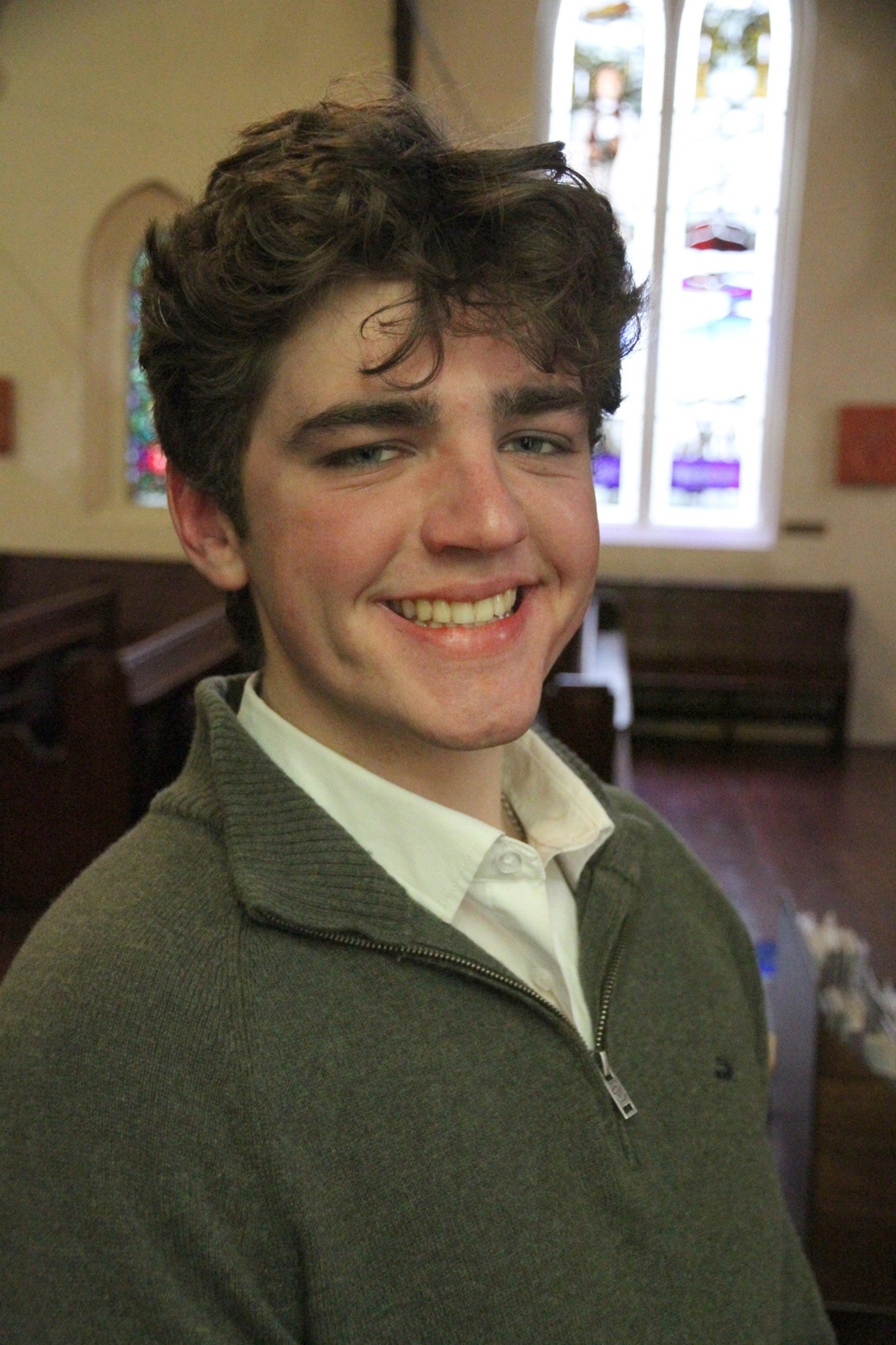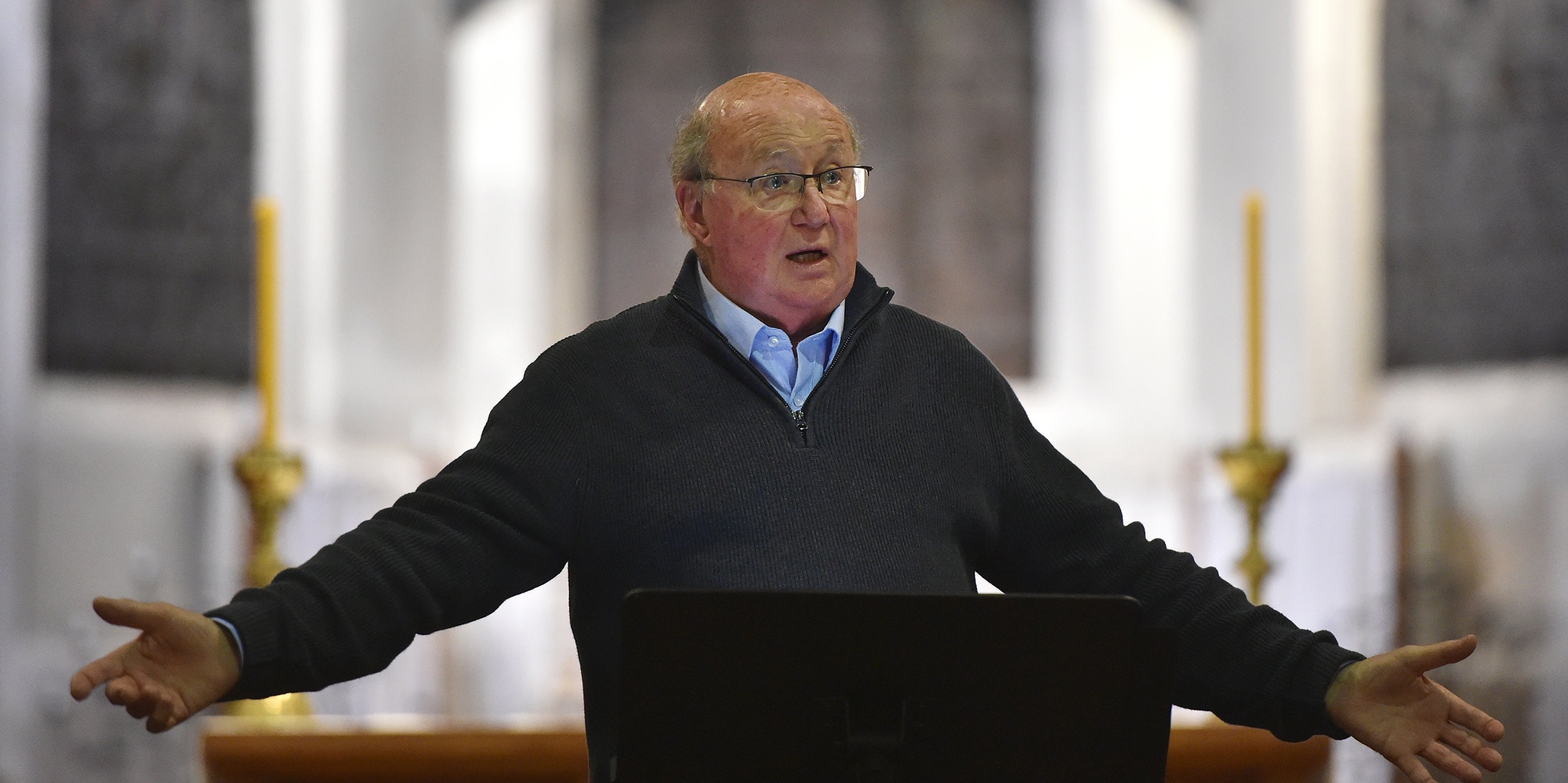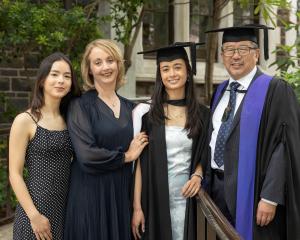
When members of the Southern Youth Choir begin to sing The Armed Man, many will be thinking of what their ancestors went through while serving in the armed forces.
The "Mass for Peace" by Sir Karl Jenkins celebrates its 25th anniversary this year. Originally commissioned by the Royal Armouries Museum, it premiered at the Royal Albert Hall, London, on April 25, 2000, and was dedicated to the victims of the Kosovo crisis.
Written for a choir with soloists and a symphonic orchestra, it is considered an anti-war piece, using the text of the Latin Mass and poetry and prose from around the world to tell the story of going to war and the horror and loss that results. It ends with a prayer for peace.
It has been performed around the world more than 3000 times — including in New York on the 10th anniversary of 9/11. The 3000th performance was conducted by Sir Karl, celebrating his 80th birthday, at the Royal Albert Hall last year.
Southern Youth Choir director John Buchanan says they selected the work as it commemorates 80 years since the end of World War 2.
"I think it’s an appropriate work in these times to do."
Having conducted the piece twice before, Buchanan is no stranger to the work, which he describes as very relatable for an audience.
"He weaves poems to it, like one of the Rudyard Kipling ones about getting ready for war, going to war. Then we know that we could be going to die. It's quite a powerful poem. It was that Victorian thing about being brave and going off to die for your country.
"And then it takes you to the actual battle. And then at the end there, there's this amazing part where the choir just makes this huge noise like the sounds of battle, the sounds of people dying, really horrific-sounding and then silence."

"It ends up with a beautiful unaccompanied chorale, just about God shall wipe away your tears."
Choir member Kate Koller, 20, a student from Christchurch, says it is also appropriate as it is coming up to the first Matariki since the last member of the 28th Maori Battalion (Sir Bom Gillies) died.
"So it’s coming up to the first chance to remember him and I guess the members of the Maori Battalion, so that’s special."
For the choir members it is also a chance to remember their own great and great-great grandparents’ contributions to various wars around the world, as well as the impact on and ramifications for their families.
Soprano and New Zealand Youth Choir member Rosie Auchinvole’s great-grandfather on her father’s side was a Royal Air Force squadron leader who was in a plane which crashed on the Isle of Mull during World War 2.
Her family went to Mull in 2015 and visited a whisky shop, which turned out to be owned by the descendants of the people who saved her great-grandfather.
"It was, like, middle of winter, high up on a mountain, he had to trek through the snow in the middle of the night [to save them]. It's just a crazy, weird story."
Her grandfather Chris, who was in the armed forces in the United Kingdom, but now lives in Dunedin, sings in the RSA Choir and Auchinvole, who grew up in Dunedin, is an RSA choir scholar, so they sing together sometimes.
"Which is really, really cute, so that's a nice connection to The Armed Man as well."
The grandfather of fellow chorister George Warren was in the British Army for most of his working life and served a lot of time in Northern Ireland during the Troubles.

"Performing this concert makes me think of Granddad in a way because, I mean, he's still with us and me and him used to attend all of the Anzac Day services together ever since I was a wee lad."
That had only stopped this year as, after a car accident last year, his grandfather, who is 85, struggles to walk.
Koller’s great-grandfather was more like a grandfather to her, but died when she was 9. Before he died, the Royal Air Force navigator, who had been reluctant to talk about the war, spoke about his time in the Pacific.
"He had some really cool stories ... [such as] one day the pilot dropped something so he bent over to pick it up right as a bullet went above his head. He had some close experiences. I think it really impacted him. My mum said her granddad was the same. He didn't talk about it at all. He survived everything he fought but he didn't talk about it ever."
The worst family story for her was learning of her relatives in the mounted services having their horses killed before returning home.
"I’m such a big animal lover and that has always got to me."
Dunedin’s Ewen Clarke-Wallace, 21, who is one of the longest-serving choir members, having joined at 15, will be remembering his great-grandfather, who died in Egypt at the beginning of World War 2. But other ancestors, two brothers from Lawrence, luckily returned from the war. Another was involved in the South African Light Horse Brigade in the Boer Wars.
"It kind of just underscores the reasons why people went to war and why they actually did that. Because it's very easy to be like ‘these silly people with their silly killing each other’. But they did that for a reason. And we are that reason. So it's important for me that there's, you know, both sides of that interaction."
Buchanan says performing a full work like The Armed Man will be the biggest performance the choir has done in recent years. The choir will be performing the "reduced orchestration" option, so a cellist — choir member Portia Bell — flautist, three trumpets and a group of percussionists have been enlisted.
Having conducted the piece before, he is impressed at how well the choir are singing it in rehearsal.

The choir was was established in 1992 by Maureen Smith and Anthony Ritchie for young singers aged 16-25, whether students or working.
"It’s open to all people but they’re mainly university students, and it’s had its ups and downs as far as numbers are concerned over the years."
In recent years, they have stopped auditioning and opened the choir to anyone who has performed in a secondary school choir, and numbers have grown to about 65.
The singers all enjoy the collegiality of the choir, the ability to meet others with similar interests and how it provides a break from the stress of study.
The aim is to do at least two performances a year. Last year the choir performed Vivaldi’s Gloria at the Big Sing, and have also performed concerts featuring a mixed bill of classical and popular music.
"And those concerts got a standing ovation. They're singing really well. They are singing magnificently."
Buchanan puts their success down to a change in the ethos of the choir, which has a student committee very involved in its work.
"There's a good range of experience in the choir. There's people who have sung in school choirs their whole lives. There's people doing music degrees. People in national choirs. Everyone gets along."
To see:
Southern Youth Choir and chamber orchestra, The Armed Man, May 25, 2.30pm, St Paul’s Cathedral.














